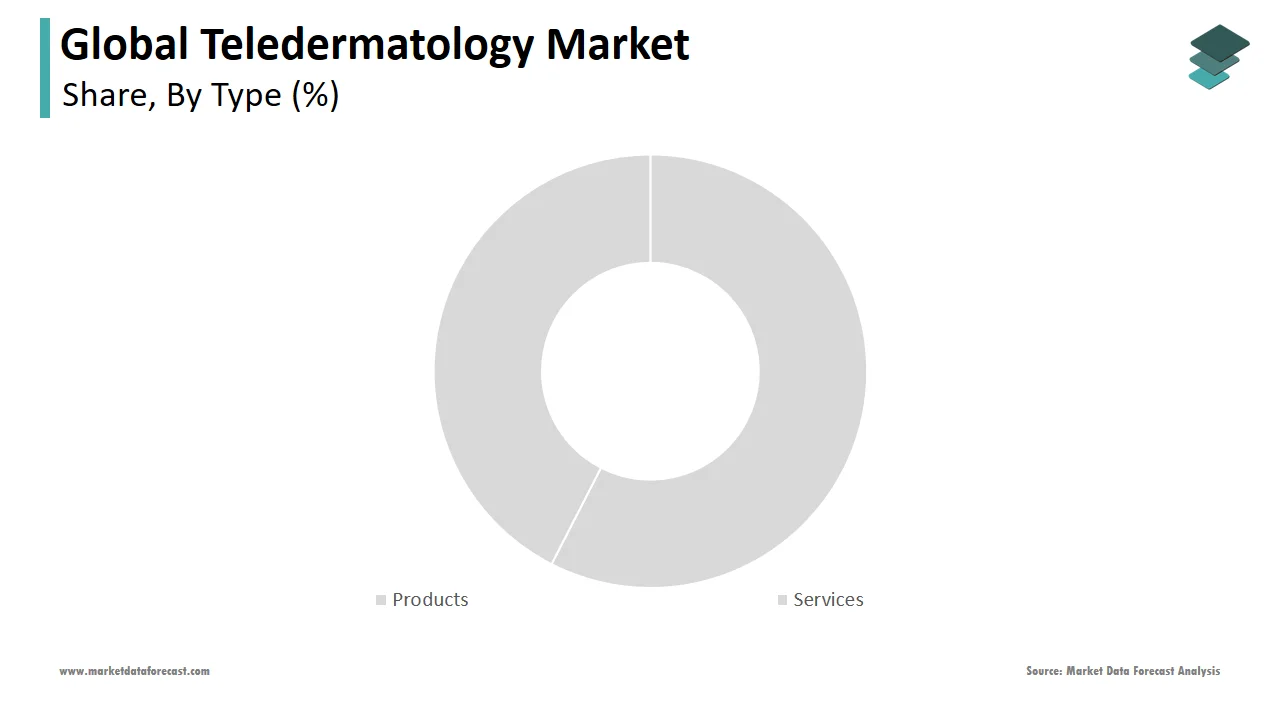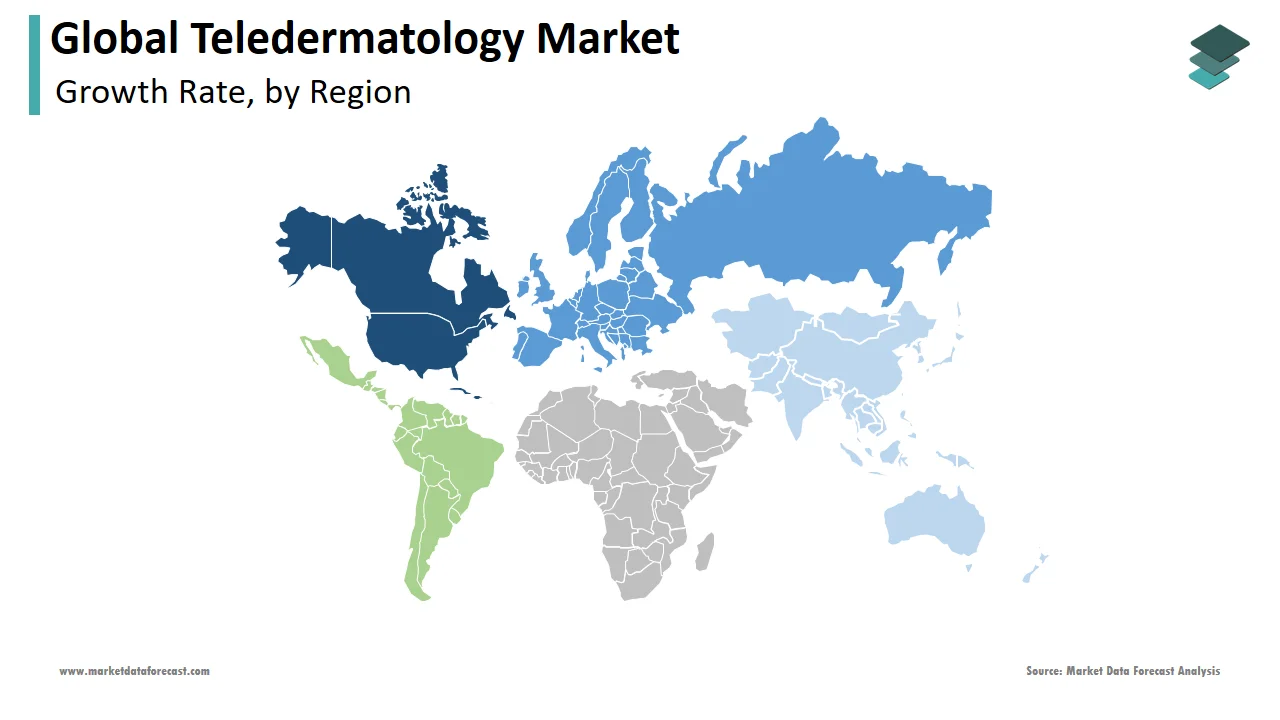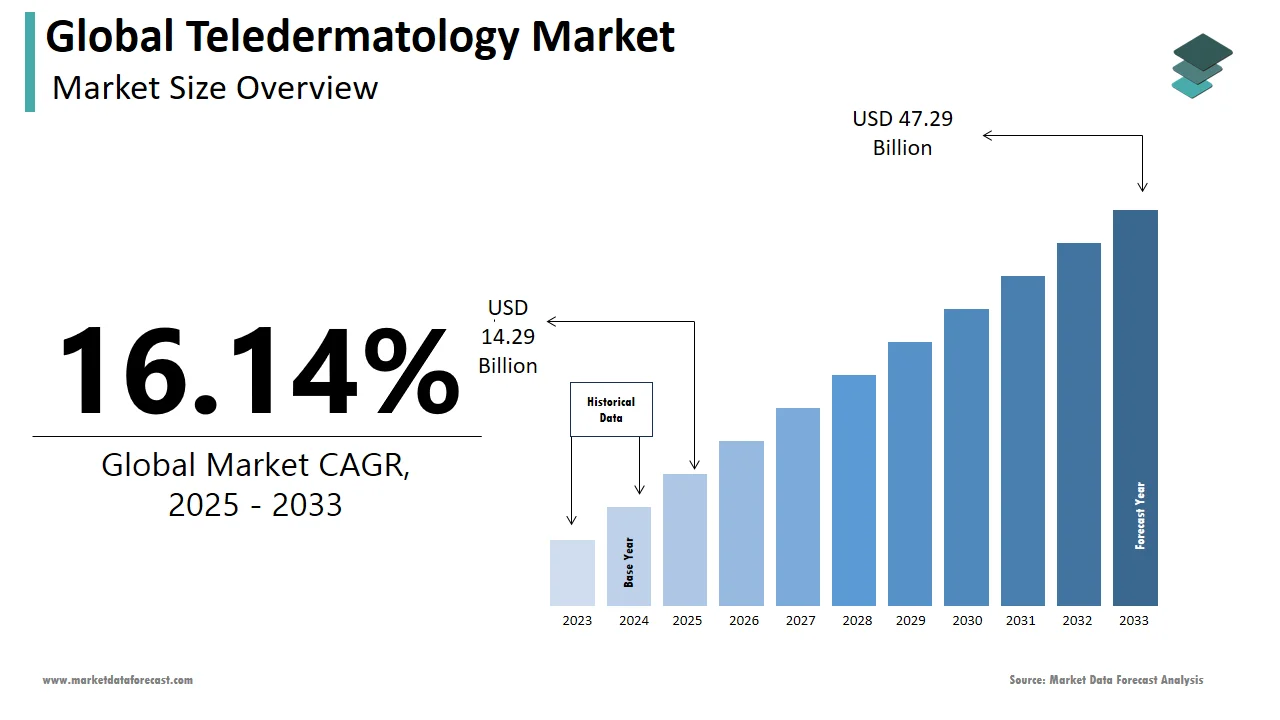Global Teledermatology Market Size, Share, Trends & Growth Forecast By Type, Modality, End User and Region (North America, Europe, Asia-Pacific, Latin America, Middle East and Africa), Industry Analysis From 2025 To 2033.
Global Teledermatology Market Size
The size of the global teledermatology market was worth USD 12.30 billion in 2024. The global market is anticipated to grow at a CAGR of 16.14% from 2025 to 2033 and be worth USD 47.29 billion by 2033 from USD 14.29 billion in 2025.
MARKET DRIVERS
The growing patient population suffering from skin diseases majorly drives the growth of the teledermatology market.
The number of people suffering from dermatological issues has been growing continuously due to factors such as changes in lifestyle and habits and an increasing aging population. The growing patient population of dermatological diseases has resulted in an increased demand for dermatological treatment solutions, which has become a big plus to the teledermatology market. The growing use of the internet and telecommunication services has resulted in an increased demand for the teledermatology market as people are more comfortable getting consulted via video conferencing or voice calling. Teledermatology saves time and costs associated with traveling and appointments. People with a disability or a hectic schedule can get a consultation and get the skin care treatment they require from the comfort of their homes, as some people can be self-conscious about going out. The rapid advancements in technology, such as high-resolution cameras, artificial intelligence, machine learning and virtual reality, further fuel the growth rate of the teledermatology market.
MARKET RESTRAINTS
Bandwidth and connectivity issues are key issues restricting the growth of the teledermatology market. The teledermatology market targets remote areas where there is a lack of skilled dermatologists; remote areas often do not have access to higher bandwidth and internet speed, and network coverage due to poor infrastructure and high cost of implementation. The doctor-patient relationship is based on trust and face-to-face interaction which further affects the growth of the teledermatology market. Dermatologists might not be able to give the most optimum treatment as dermatologists won't be able to analyze the skin and symptoms through online mediums physically. The threat of security breaches and privacy concerns regarding the patient's sensitive data impedes the growth of the global market.
REPORT COVERAGE
|
REPORT METRIC |
DETAILS |
|
Market Size Available |
2024 to 2033 |
|
Base Year |
2024 |
|
Forecast Period |
2025 to 2033 |
|
Segments Covered |
By Type, Modality, End User, and Region |
|
Various Analyses Covered |
Global, Regional and country Level Analysis, Segment-Level Analysis, Drivers, Restraints, Opportunities, Challenges; PESTLE Analysis; Porter’s Five Forces Analysis, Competitive Landscape, Analyst Overview of Investment Opportunities |
|
Regions Covered |
North America, Europe, Asia Pacific, Latin America, the Middle East, and Africa |
|
Market Leaders Profiled |
Analyzed Lagnosis, Honeywell Life Care Solutions, Philips Healthcare, AMD Global Telemedicine INC |
SEGMENTAL ANALYSIS
By Type Insights

Based on type, the services segment is anticipated to account for the major share of the global market during the forecast period. The benefits associated with the teledermatology services, such as access to dermatological expertise, especially in underserved or remote areas, the convenience of virtual dermatology consultations that reduce the need for in-person visits and cost savings for both patients and healthcare systems majorly drive the growth of the services segment in the global market.The products segment accounted for a substantial share of the global market in 2024 and is estimated to grow at a healthy CAGR during the forecast period. Technological advancements, integration possibilities with EHR and other healthcare systems and robust data security features in teledermatology products propel the growth of the products segment in the global market.
By Modality Insights
The store-and-forward (asynchronous) segment is estimated to account for the leading share of the global market during the forecast period. The store-and-forward (asynchronous) includes taking videos and images of the affected area or skin and sending them to the doctor who can analyse and give suitable diagnosis treatment to the patient. The store-and-forward (asynchronous) modality makes sure that the resolution is retained, and the doctors can take their time analyzing the condition.The real-time (synchronous) segment is anticipated to witness a healthy CAGR in the coming years. The real-time (synchronous) includes real-time audio or video conferencing with the patient while analyzing the skin; the resolution and quality of the video stream can affect the treatment.
By End User Insights
Based on end-users, the homecare segment is expected to account for the major share of the worldwide teledermatology market during the forecast period. Home care is getting more and more accepted. People with a physical disability can get affordable treatment from the comfort of their homes.The healthcare unit segment is anticipated to grow at a considerable CAGR in the coming years due to the increased market in dermatology and skin care.
REGIONAL ANALYSIS

North America accounts for the highest share of the global teledermatology market during the forecast period owing to the fast-paced lifestyle and dietary choices among people of the North American region and the high prevalence of skin conditions. The availability of a population with high disposable income in North America further fuels the growth rate of the North American market. The European region accounted for the second-largest share of the global market during the forecast period. The Asia Pacific region is predicted to witness the fastest CAGR among all the regions in the global teledermatology market during the forecast period as the recent trend is towards Dermatology and cosmetics, Countries like China, South Korea, and India have increased beauty standards which propels and drive the APAC market growth.
KEY MARKET PLAYERS
Analyzed Lagnosis, Honeywell Life Care Solutions, Philips Healthcare, AMD Global Telemedicine INC, GE Healthcare, Aerotel Medical Systems, Click Diagnostics, Permalink, Allscripts Healthcare Solutions Inc. and McKesson Corporation are some of the notable companies in the global teledermatology market.
RECENT MARKET HAPPENINGS
- In January 2022, HealthSparq, a prominent healthcare transparency solutions provider for health insurers, partnered with MDLIVE to integrate telehealth services into its transparency platform. This collaboration aims to extend telehealth and Teledermatology offerings to health plans and employers throughout the United States by HealthSparq.
MARKET SEGMENTATION
The research report on the teledermatology market has been segmented and sub-segmented into the market by type, modality, real-time, end-user, and region.
By Type
- Products
- Services
By Modality
- Store-and-forward (Asynchronous)
- Real-time (Synchronous)
By End User
- Healthcare Unit
- Homecare
By Region
- North America
- Europe
- Asia-Pacific
- Latin America
- Middle East Africa
Frequently Asked Questions
What does the future hold for the teledermatology market?
The future of teledermatology looks promising. Advances in AI and machine learning can enhance diagnostic accuracy, and as technology improves, more sophisticated tools for capturing and transmitting skin images will likely become available, further expanding the reach and effectiveness of teledermatology services.
What are the key drivers of growth in the teledermatology market?
The growth of the teledermatology market is primarily driven by the increasing prevalence of skin diseases, the growing adoption of telemedicine solutions, improved internet connectivity, and the need for convenient and timely healthcare services.
Are there any challenges hindering the growth of the teledermatology market?
Challenges include concerns about misdiagnosis, inadequate image quality, legal and regulatory barriers, and the inability to perform certain procedures remotely. Additionally, some patients, particularly older individuals, might face difficulties in using the necessary technology.
Related Reports
Access the study in MULTIPLE FORMATS
Purchase options starting from $ 2500
Didn’t find what you’re looking for?
TALK TO OUR ANALYST TEAM
Need something within your budget?
NO WORRIES! WE GOT YOU COVERED!
Call us on: +1 888 702 9696 (U.S Toll Free)
Write to us: [email protected]

